- Home
- Nora Roberts
Carolina Moon Page 10
Carolina Moon Read online
Page 10
glasses into his hands so she could run hers over the iron.
His first reaction was amusement, then a cool satisfaction. Just as he started to sip the tea, she stepped into the center of the frame, and ran her fingertips up the iron rungs.
And his reaction turned to sheer lust, so basic, so strong, he took one deliberate step in retreat. He could imagine, perfectly, wrapping her fingers around those posts, holding them there as he thrust into her. One hard, long stroke after another while those long-lidded witch eyes of hers went to smoke.
"It's sturdy." She gave the headboard a little shake, and his stomach pitched and knotted.
"Damn well better be." "You did a good job, and I was rude. Thank you, and I'm sorry."
"You're welcome and forget it." He handed her the glass, then reached up to tug the chain of the ceiling fan. "It's warm in here." He wanted to bite that spot just under her left ear where her jaw began its curve.
Because his voice was clipped, she suffered another pang of guilt. "I really was rude, Cade. I'm not very good with people."
"Not good with people? And you're going to open a shop where you'll deal with them every day?"
"That's customers," she said. "I'm very good with customers. I'm positively gracious with customers."
"So . . ." He moved in until he stood just on the other side of the frame. "If I buy something from you, you'll be friendly."
She didn't have to read his thoughts when she could read his eyes. "Not that friendly." Nimbly, she sidestepped him and moved out of the room.
"I could be a very good customer."
"You're trying to frazzle me again."
"I am frazzling you again. Tory." He laid a hand on her shoulder. "Stop that," he said mildly when she stiffened. He set his glass on the floor, then turned her to face him. "There, that didn't hurt a bit, did it?"
He had gentle hands. It had been a long time, a very long time, since she'd felt a gentle touch from a man. "I'm not interested in flirtations."
"I am, but we can compromise for now. Let's try to be friends."
"I'm not a good friend."
"I am. Now, why don't we get the rest of your bed in here so you can get a decent night's sleep tonight."
She let him get nearly to the door. She'd told herself she wouldn't speak of it. Not to him. Not to anyone, until she was ready. Until she was strong and she was sure. But it was bubbling up inside her.
"Cade. You never asked. Not then, not now. You've never once asked how I knew." Her palms went damp as he turned, so she clutched them to her elbows. "You've never asked how I knew where to find her. How I knew what had happened."
"I didn't have to ask."
Her words rushed out now, popping like overwound springs. "Some people think I was with her, even though I said I wasn't. That I ran away and left her. That I just left her—"
"That's not what I think."
"And the ones who believed me, believed that I saw the way I said I did, they stepped back from me, kept their children away from me. They stopped looking me in the eye."
"I looked you in the eye, Tory. Then and now."
She had to take a breath to settle herself. "Why? If you can believe I have that inside me, why didn't you step back? Why are you coming around here now? Do you expect me to tell you the future? Because I can't. Or give you some stock tips? Because I won't."
Her face was flushed, he noted, her eyes dark and alive with ripe and ready emotions. One of those emotions, one that prickled through the surface of all the others, was anger.
He wouldn't play to it, or to what he believed were her expectations. "I prefer living each day as it comes, thanks all the same.
And I've got broker to take care of my portfolio. Did it ever occur to you that I'm coming around here now because I like the look of you?"
"No."
"Then you are the first and only female without vanity I've had occasion to meet. Wouldn't hurt to get yourself some. Now ... " He cocked his head. "Do you want to get this mattress in here, or astound and amaze me by telling me what I had for lunch this afternoon?"
Her mouth opened as he walked out the door. Had he actually made a joke about it? People made fun of her, or rolled their eyes. Or backed cautiously away. Some came begging for her to solve all their problems and unhappiness. But no one, in her experience, made a casual joke.
She rolled the tension out of her shoulders, then walked outside to help him carry in the mattress.
They worked in silence now, her stewing, and his mind elsewhere. When the bed was in place, Cade polished off his tea, took the glass into the kitchen, then headed out.
"You should be able to handle it from here. I'm a bit behind schedule."
Oh no you don't, she thought, and rushed after him. "I appreciate the help. I really do." Whether it was impulse or annoyance, she followed it and wrapped her fingers around his arm until he stopped and glanced down.
"Well then, you just think of me when you're sliding off to dreamland tonight." "I know it cost you some time. Oh, you said something about lunch?" Baffled, he shook his head. "Lunch?" It was just enough. "Yes, your lunch today. Half a ham sandwich with Swiss and brown mustard. You gave the other half to that skinny black dog who comes begging the fields when he sees you." She smiled now, stepped away. "You ought to be ready for supper soon."
He pondered a minute, then decided to go with instinct. "Tory, why don't you come back here and tell me what I'm thinking now."
She felt something like a laugh rumble : her chest. "I believe I'll just let you keep that to yourself." She let the screen door slam behind her
7
It was the flowers, Margaret always thought, that kept her sane. When she tended her flowers, they never talked back, never told her she didn't understand, never yanked up their roots and stalked away in a huff.
She could prune away the wild parts, those sudden growth sprigs that thought they could go their own way, until the plant was shaped as she intended for it to be shaped.
She'd have been much better off, she imagined, if she'd stayed a spinster and had raised peonies instead of children.
Children broke hearts just by being children.
But marriage had been expected of her. She had done, for as long as she could remember, what had been expected of her. Occasionally she did a little more, but rarely, very rarely did she do less.
And she had loved her husband, for surely that had been expected as well. Jasper Lavelle had been a handsome young man when he'd come courting her. Oh, and he'd had charm as well, the same slow, sly grin she sometimes saw cruise across the face of the son they'd made together. He'd had a temper, but that had been exciting she'd been young enough to things exciting. She recognized that same temper, the quick flash of it, in he daughter. The daughter who'd lived.
He'd been big and strong, a dramatic kind of man with a loud laugh and hard hands. Perhaps that was why she saw so much of him, and so little of herself, in children who had been left to them.
It angered her, when she took stock, how vague and blurred her imprint was on the clay of those lives she'd helped create. She had opted, sensibly she was sure, to concentrate on leaving her mark on Beaux Reve instead. There her touch, her vision, ran deep as the roots of the old oaks that lined the drive.
And that, more than son or daughter, had become her pride.
If Hope had lived, it would have been different. She snipped off the faded head of dianthus without sentiment or regret for the loss of the once fragrant bloom. If Hope had lived, she would have reflected, and realized, all the hopes and dreams a mother instilled in a daughter. She would have given a new luster to the polish of the Lavelle name.
Jasper would have stayed steady and never have disgraced himself with loose women and casual scandal. He would never have strayed from the path they had both started on and left his wife to rub the smudges from the name they shared.
But in the end, Jasper had been a storm, and when he hadn't been crashing, he'd been brewin
g. Life with him had been a series of events, she supposed. His last had been the poor taste to suffer a fatal heart attack in the bed of his mistress. The fact that the woman had had the sense and the dignity to step back while the incident was hushed up sat in Margaret's craw like a jagged bone.
Still, all said and done, it was so much easier to be his widow than it had been to be his wife.
She couldn't say why he was so much on her mind just now, on this blissfully cool morning when the dew lay wet kisses on her blossoms and the sky was the soft and gentle blue of spring.
He'd been a good husband. For the first stage of their marriage, he'd been a strong and solid provider, a man who'd made the decisions so she didn't have to mind the details. He'd been an attentive father, if perhaps a mite too indulgent.
The passion between them had quieted by the first anniversary of their wedding night. But passion was a difficult and distracting element in a life, such a demanding and unstable emotion. Not that she'd ever refused him, of course, never once since their wedding night had she turned from him in their bed.
Margaret was proud of that, proud she'd been a good and dutiful wife. Even when the idea of sex sickened her, hadn't she lain silent and allowed him his release?
She clipped off more deadheads with a sharp clack of blades, placed the faded flowers in her discard basket.
It was he who had turned away, he who had changed. Nothing had been the same in their marriage, in their lives, in their home since that terrible morning, that hot, sticky August morning when they'd found their Hope in the marsh.
Sweet, good-natured Hope, she thought, with a grief that had become both duller and more heavy through the years. Hope, her bright little angel, the only one of the children who'd come from her who had seemed truly connected. Truly hers.
There were times, after all these years there were still times she wondered if that loss had been a kind of punishment. The taking away of the child she'd loved most. But what crime, what sin had she committed that had merited that kind of punishment?
Indulgence perhaps. Indulging the little girl when it would have been wiser—it was so easy to be wise with distance—to have discouraged, even to have forbade her sweet, innocent Hope from associating with the Bodeen girl. That had been a mistake, but surely not a sin.
And if it had been a sin, it had been more Jasper's. He'd brushed away her concerns when she'd voiced them, even laughed at them. The Bodeen girl was harmless, that's what he'd said. Harmless.
Jasper had paid for that misconception, that mistake, that sin, the whole rest of his life. And still it wasn't enough. It would never be enough.
The Bodeen girl had killed Hope as surely as if she'd choked the life from her with her own small and dirty hands.
Now she was back. Back to Progress, back to the Marsh House, back to their lives. As if she had the right.
Margaret yanked out some bindweed, tossed it into her basket. Her grandmother had liked to say that weeds were just wildflowers that bloomed in the wrong place. But they weren't. They were invaders and needed to be pulled out, cut down, destroyed however it could be done.
Victoria Bodeen could not be allowed to set roots and bloom in Progress.
She looked so pretty, Cade mused. His mother, that admirable and unreachable woman. She dressed for gardening as s dressed for everything. With care, precise and perfection.
She wore a wide-brimmed straw hat shade her head, the ribbon around it a soft blue to match the long cotton skirt and crisp blouse she protected with a dull gray gardening apron.
There were pearls at her ears, round moons of white as luminous as the gardenias she so treasured.
She'd let her hair go white as well, thou she was only fifty-three. It was as if she wanted that symbol of age and dignity. Her skin was smooth. Worry never seemed show on it. The contrast of that pretty youthful face and the shock of white hair was striking.
She'd kept her figure. She sculpted ruthlessly with diet and exercise. Unwanted pounds weren't tolerated any more than a stray weed in her gardens.
She'd been a widow eight years now, a had slid so slickly into that slot, it was hard to remember her being otherwise.
He knew she was displeased with him, but that was nothing new. Her displeasure was most usually expressed in the same way as her approval. With a few cool words.
He couldn't remember the last time she touched him with feeling, or with warmth. He couldn’t remember if he had ever expected her to do so. But she remained his mother, and he would do what he could to close the rift between them. He knew, too well, how a rift could widen into a gulf with silence.
A small yellow butterfly flitted around her head, and was ignored. She knew it was there, just as she knew he walked to her with long strides along the bricked path. But she acknowledged neither.
"It's a nice morning for being outside," Cade began. "Spring's been good to the flowers."
"We could use some rain."
"They're calling for some tonight, and none too soon. April's been drier than I like." He crouched down, leaving an arm span between them. Nearby bees hummed madly in the hills of azaleas. "Most of the cultivating’s done. I've got to go 'round and check on how the cattle's doing. We've got some bull calves ready to become steers. I've got some errands here and there. Is there anything I can pick up for you?"
"I could use some weed killer." She lifted her head then. Her eyes were a paler, quieter blue than his own. But they were just as direct. "Unless you have some moral objection to my using it in my gardens."
"They're your gardens, Mama."
"And your fields, as I have been reminded. You’ll deal with them as you choose. Just as the properties are your properties. You'll rent them to whom you please."
"That's right." He could be as cool as she when he chose. "And the income from those fields, and those properties, will keep Beaux Reves in the black, well into it. As long as it's in my hands."
She pinched off a pansy with quick, ruthless fingers. "Income is not the standard by which one lives one's life."
"It sure as hell makes life easier." "There is no call to take that tone with me."
"I beg your pardon. I thought there was." He set his hands on his knees, waited for them to relax. "I changed the way the farm's run, started changing it over five years back. And it works. Still you refuse to accept or acknowledge that I've made it work. There's nothing I can do about that. As for the properties, I do that my own way as well. Papa's way isn't mine."
"Do you think he would have let that Bodeen girl set foot on what was ours?" "I don't know." "Or care," she said, and went back to her weeding.
"Maybe not." He looked away. "I can’t live my life asking myself what he would’ve done or wanted or expected. But I do know Tory Bodeen isn't responsible for what happened eighteen years ago." "You're wrong." "Well, one of us is." He got to his feet.
"Either way, she's here. Has a right to be here. There's nothing to be done about it."
They would see, Margaret thought as her son left her alone. They would see what could be done about it.
His mood stayed raw throughout the day. No matter how many times he tried and failed to reach his mother, he felt the sting of that rejection as fresh as the first.
He'd stopped trying to explain and justify his changes to the farm. He still remembered the night he'd shown her charts and graphs and projections, still remembered how she'd stared at him, had stonily informed him before she'd walked away that Beaux Reves was something that couldn't be put on paper and analyzed.
It had hurt, more, he supposed, because she'd been right. It couldn't be put on paper. Neither could the land itself that he was so determined to protect, preserve, and pass on to the next generation of Lavelles.
His pride in it, his duty to it, were no less fierce than hers. But to Cade it was, had always been, a living thing that breathed and grew and changed with the seasons. And to her it was static, like a monument carefully tended. Or a grave.
He tolerat
ed her lack of belief in him, just as he tolerated the amusement and the resentment of his neighbors. He'd dealt with countless sleepless nights during the first three years he'd been in charge of the farm. The fear and worry that he was wrong, that he would fail, that the legacy that had come into his hands would somehow slip through them in his eagerness, in the sheer stubbornness to do things his way.
But he hadn't been wrong, not about the farm. Yes, it cost more in time, effort, and money to grow cotton organically. But the land—oh, the land thrived. He could see it bursting in the summer, resting in the winter, and in spring thirsty for what he would put into it.
He refused to poison it, no matter how many told him that by that refusal he was dooming earth and crop. They'd called him wrongheaded, stubborn, foolish, and worse.

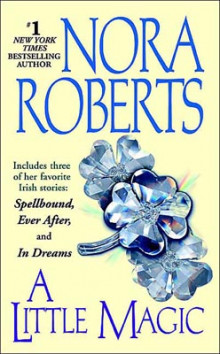 A Little Magic
A Little Magic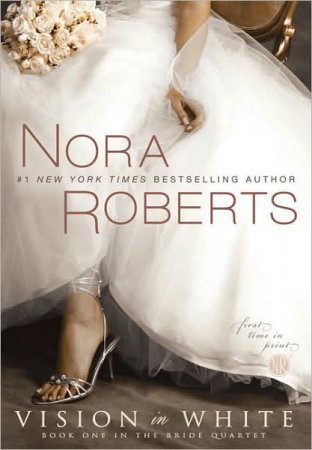 Vision in White
Vision in White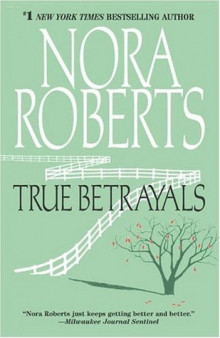 True Betrayals
True Betrayals The Next Always
The Next Always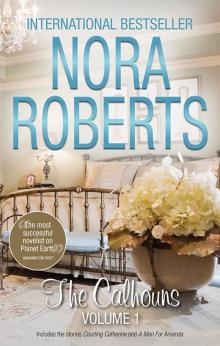 A Man for Amanda
A Man for Amanda Born in Fire
Born in Fire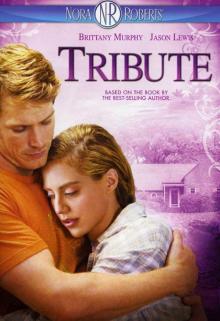 Tribute
Tribute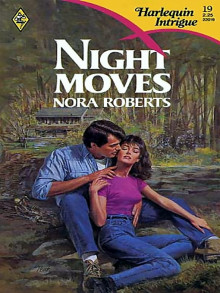 Night Moves
Night Moves Dance Upon the Air
Dance Upon the Air The Name of the Game
The Name of the Game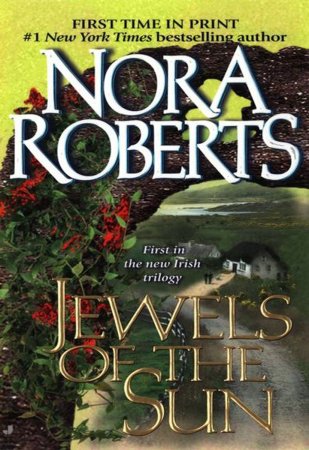 Jewels of the Sun
Jewels of the Sun River's End
River's End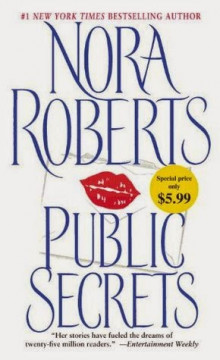 Public Secrets
Public Secrets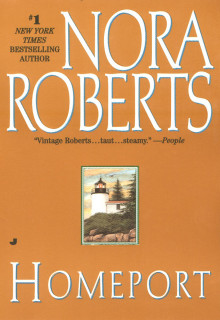 Homeport
Homeport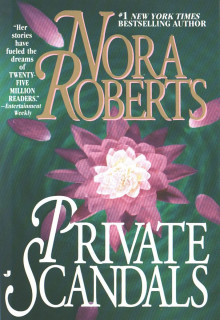 Private Scandals
Private Scandals The Witness
The Witness Blithe Images
Blithe Images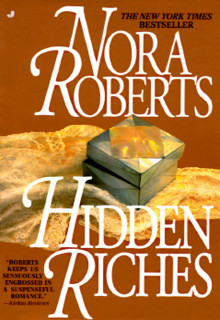 Hidden Riches
Hidden Riches Key of Light
Key of Light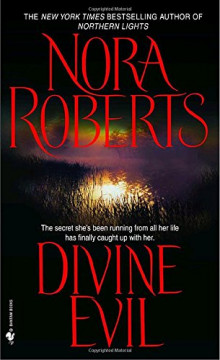 Divine Evil
Divine Evil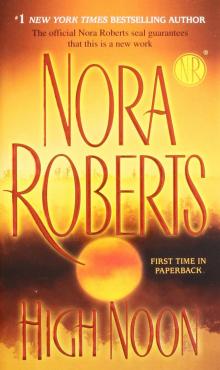 High Noon
High Noon Blue Dahlia
Blue Dahlia Sea Swept
Sea Swept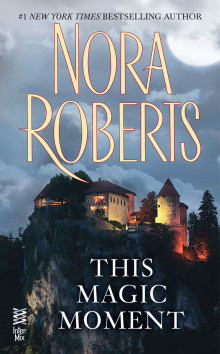 This Magic Moment
This Magic Moment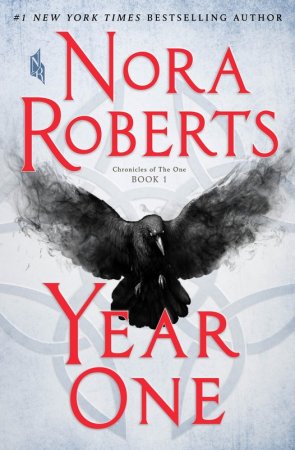 Year One
Year One A Little Fate
A Little Fate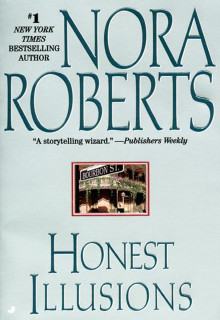 Honest Illusions
Honest Illusions The Reef
The Reef Shelter in Place
Shelter in Place The Hollow
The Hollow Holding the Dream
Holding the Dream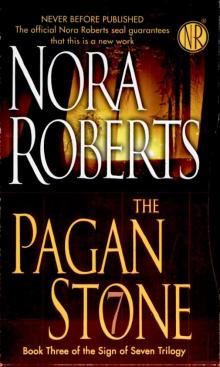 The Pagan Stone
The Pagan Stone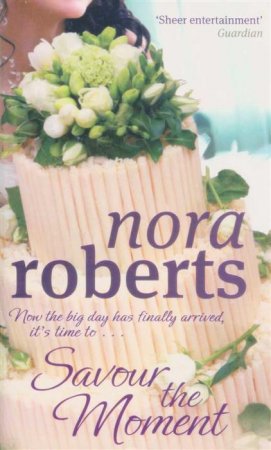 Savour the Moment
Savour the Moment The Perfect Hope
The Perfect Hope Island of Glass
Island of Glass Happy Ever After
Happy Ever After Bed of Roses
Bed of Roses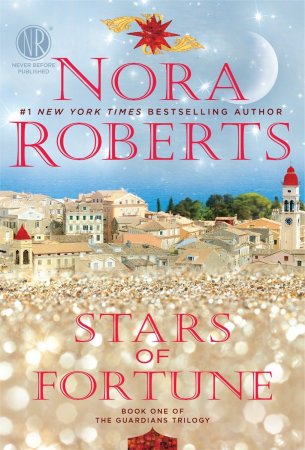 Stars of Fortune
Stars of Fortune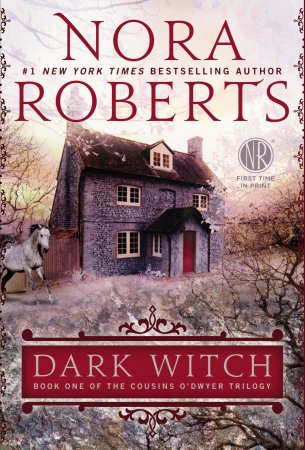 Dark Witch
Dark Witch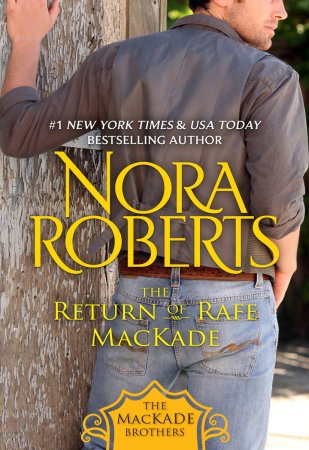 The Return of Rafe MacKade
The Return of Rafe MacKade Chesapeake Blue
Chesapeake Blue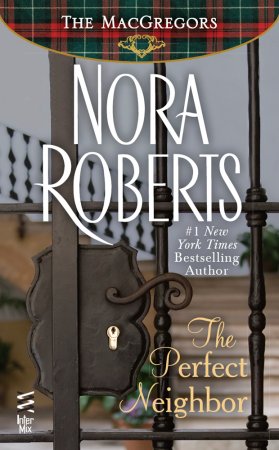 The Perfect Neighbor
The Perfect Neighbor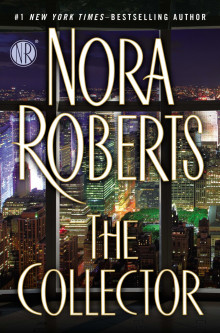 The Collector
The Collector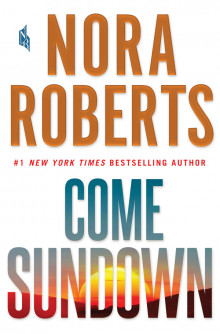 Come Sundown
Come Sundown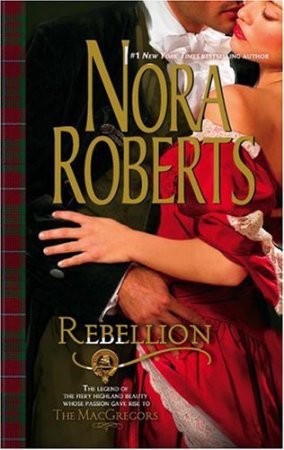 Rebellion
Rebellion Affaire Royale
Affaire Royale Daring to Dream
Daring to Dream Bay of Sighs
Bay of Sighs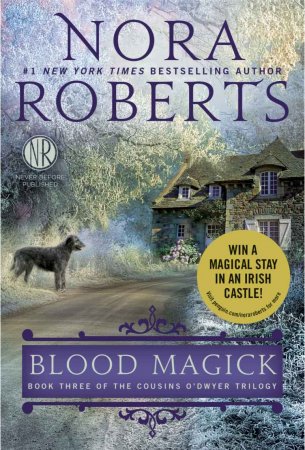 Blood Magick
Blood Magick Angels Fall
Angels Fall Captivated
Captivated The Last Boyfriend
The Last Boyfriend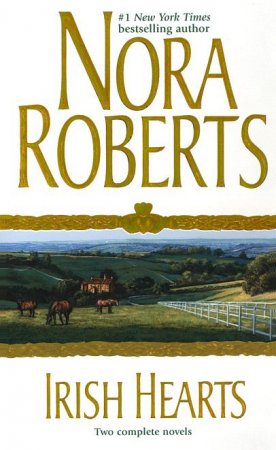 Irish Thoroughbred
Irish Thoroughbred Inner Harbor
Inner Harbor The Right Path
The Right Path Night Shadow
Night Shadow The Heart of Devin MacKade
The Heart of Devin MacKade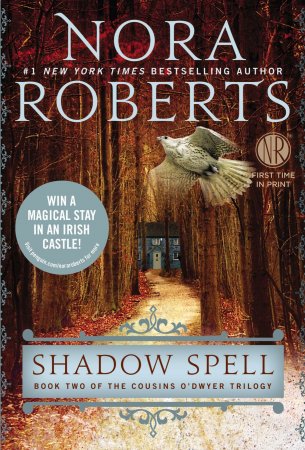 Shadow Spell
Shadow Spell The Playboy Prince
The Playboy Prince The Fall of Shane MacKade
The Fall of Shane MacKade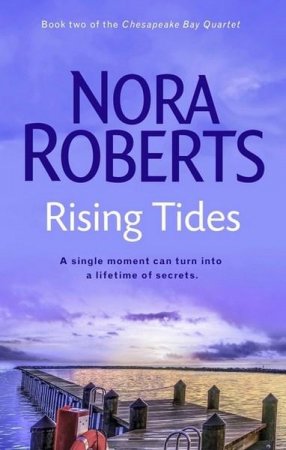 Rising Tides
Rising Tides Command Performance
Command Performance Hidden Star
Hidden Star Cordina's Crown Jewel
Cordina's Crown Jewel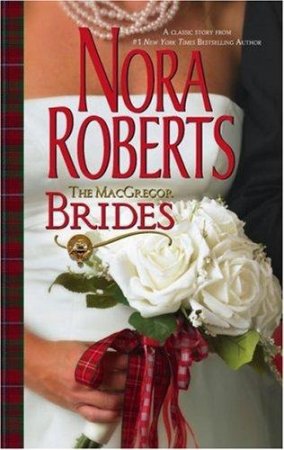 The MacGregor Brides
The MacGregor Brides The Pride of Jared MacKade
The Pride of Jared MacKade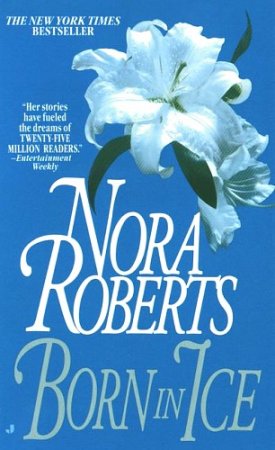 Born in Ice
Born in Ice Whiskey Beach
Whiskey Beach The Last Honest Woman
The Last Honest Woman Night Shield
Night Shield Born in Shame
Born in Shame Secret Star
Secret Star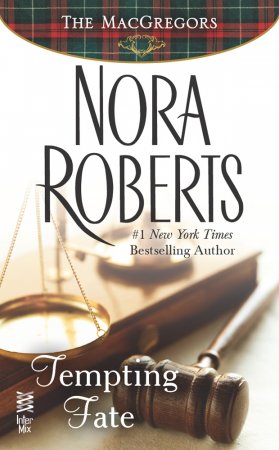 Tempting Fate
Tempting Fate Nightshade
Nightshade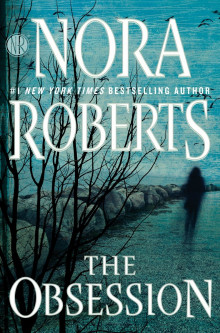 The Obsession
The Obsession Night Shift
Night Shift Playing The Odds
Playing The Odds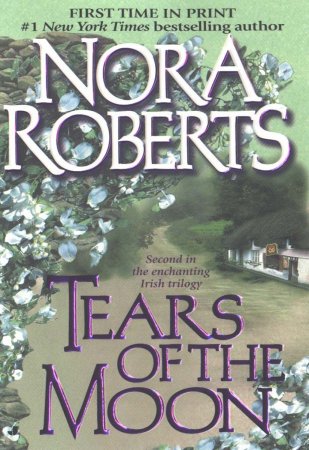 Tears of the Moon
Tears of the Moon One Man's Art
One Man's Art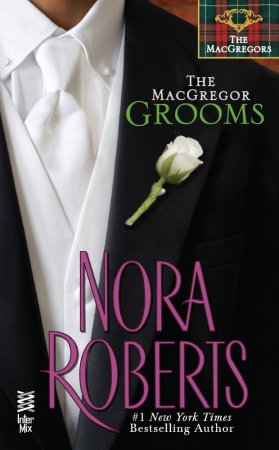 The MacGregor Groom
The MacGregor Groom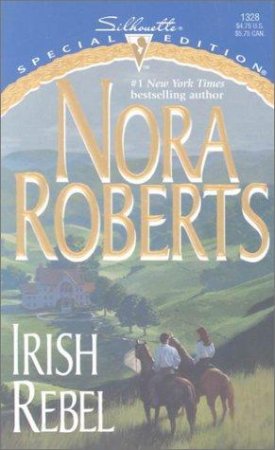 Irish Rebel
Irish Rebel Morrigan's Cross
Morrigan's Cross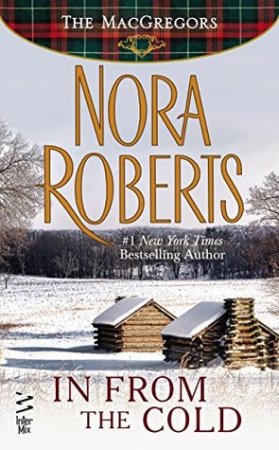 In From The Cold
In From The Cold Night Smoke
Night Smoke Finding the Dream
Finding the Dream Red Lily
Red Lily The Liar
The Liar Montana Sky
Montana Sky Heart of the Sea
Heart of the Sea All The Possibilities
All The Possibilities Opposites Attract
Opposites Attract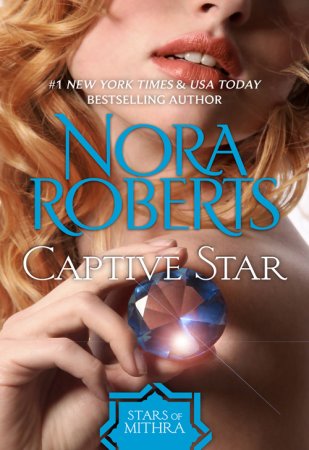 Captive Star
Captive Star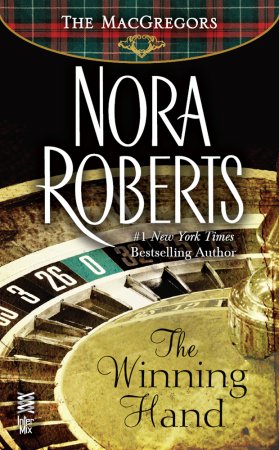 The Winning Hand
The Winning Hand Key of Valor
Key of Valor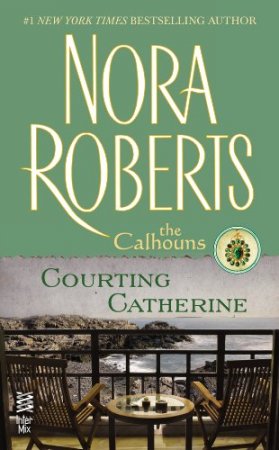 Courting Catherine
Courting Catherine Heaven and Earth
Heaven and Earth Face the Fire
Face the Fire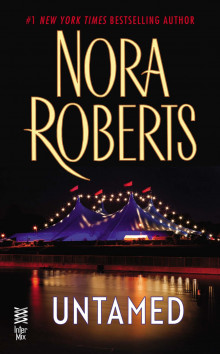 Untamed
Untamed Skin Deep
Skin Deep Enchanted
Enchanted Song of the West
Song of the West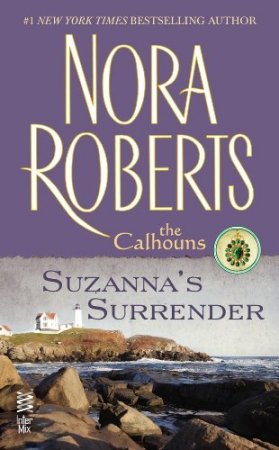 Suzanna's Surrender
Suzanna's Surrender Entranced
Entranced Dance of the Gods
Dance of the Gods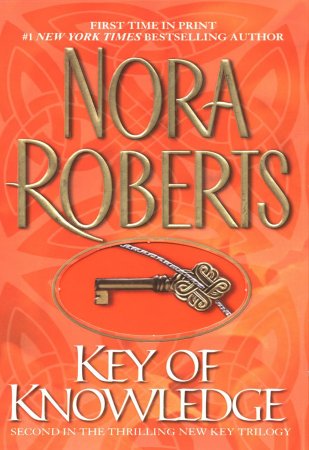 Key of Knowledge
Key of Knowledge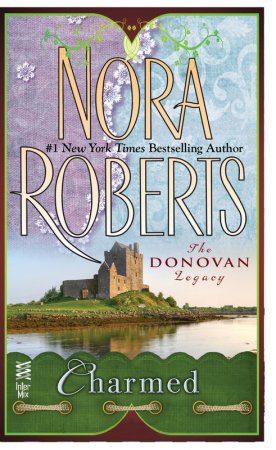 Charmed
Charmed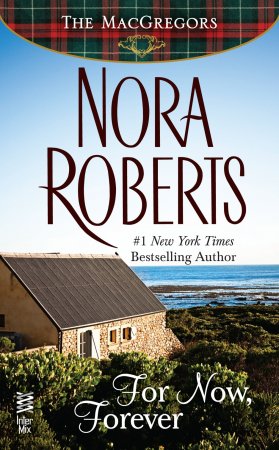 For Now, Forever
For Now, Forever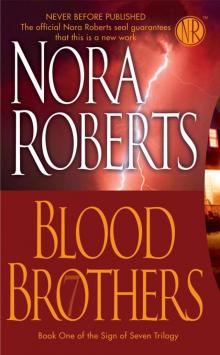 Blood Brothers
Blood Brothers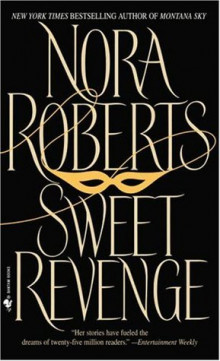 Sweet Revenge
Sweet Revenge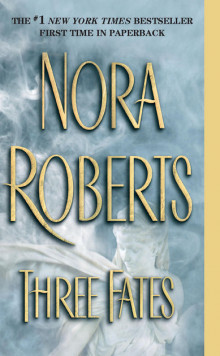 Three Fates
Three Fates Mind Over Matter
Mind Over Matter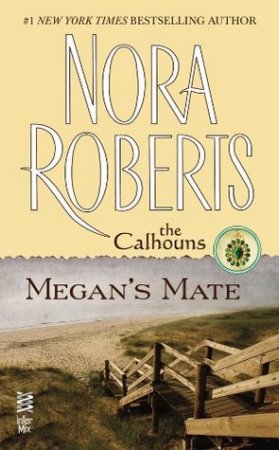 Megan's Mate
Megan's Mate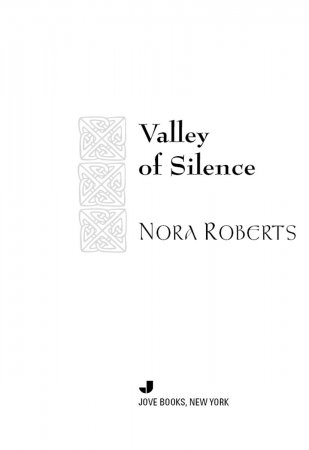 Valley of Silence
Valley of Silence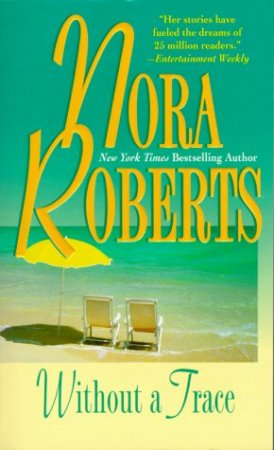 Without A Trace
Without A Trace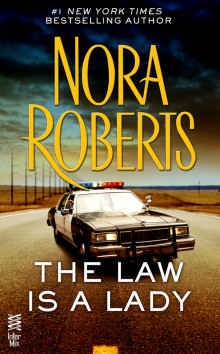 The Law is a Lady
The Law is a Lady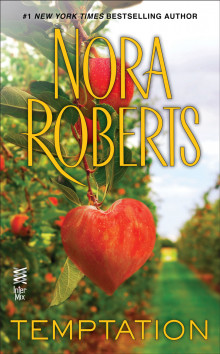 Temptation
Temptation Dance to the Piper
Dance to the Piper Blue Smoke
Blue Smoke Black Hills
Black Hills The Heart's Victory
The Heart's Victory Sullivan's Woman
Sullivan's Woman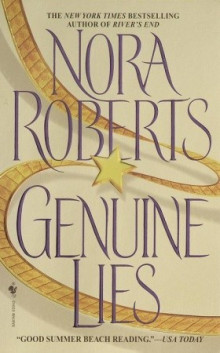 Genuine Lies
Genuine Lies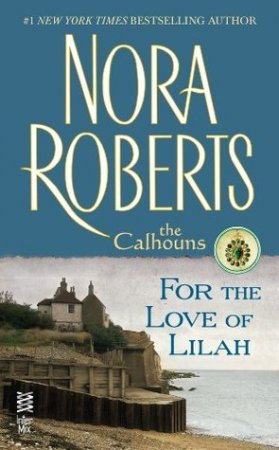 For the Love of Lilah
For the Love of Lilah Gabriel's Angel
Gabriel's Angel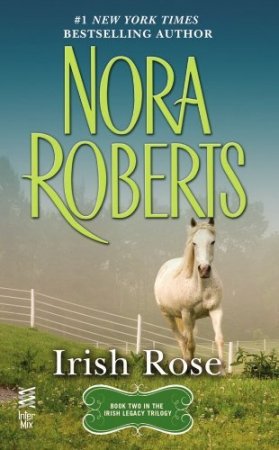 Irish Rose
Irish Rose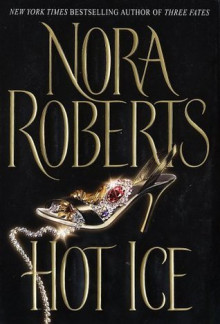 Hot Ice
Hot Ice Dual Image
Dual Image Lawless
Lawless Catch My Heart
Catch My Heart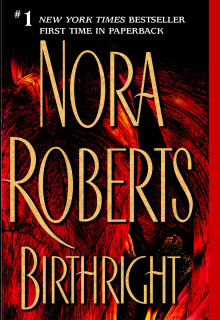 Birthright
Birthright First Impressions
First Impressions Chasing Fire
Chasing Fire Carnal Innocence
Carnal Innocence Best Laid Plans
Best Laid Plans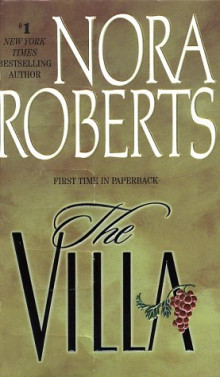 The Villa
The Villa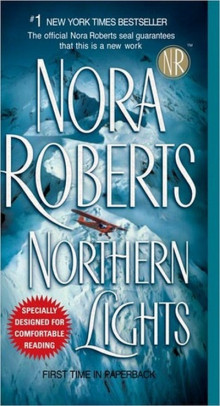 Northern Lights
Northern Lights Local Hero
Local Hero Island of Flowers
Island of Flowers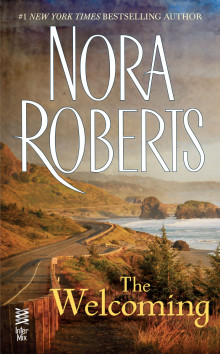 The Welcoming
The Welcoming All I Want for Christmas
All I Want for Christmas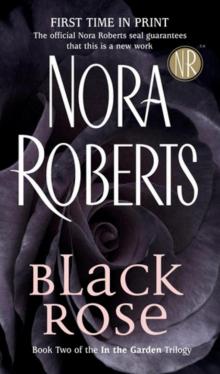 Black Rose
Black Rose Hot Rocks
Hot Rocks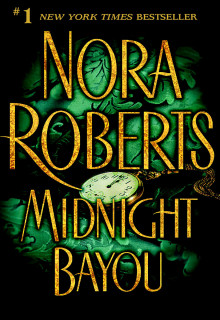 Midnight Bayou
Midnight Bayou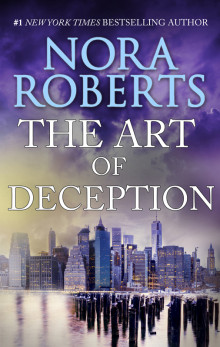 The Art of Deception
The Art of Deception From This Day
From This Day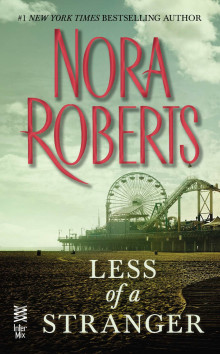 Less of a Stranger
Less of a Stranger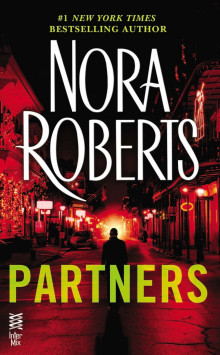 Partners
Partners Storm Warning
Storm Warning Once More With Feeling
Once More With Feeling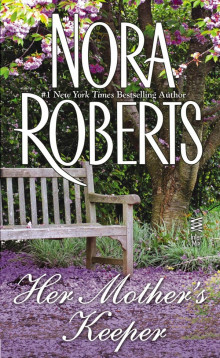 Her Mother's Keeper
Her Mother's Keeper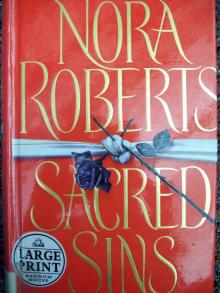 Sacred Sins
Sacred Sins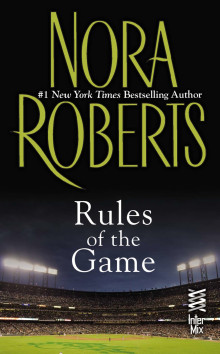 Rules of the Game
Rules of the Game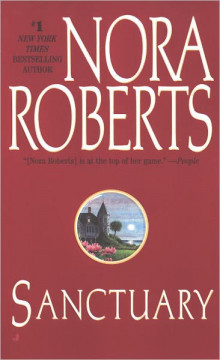 Sanctuary
Sanctuary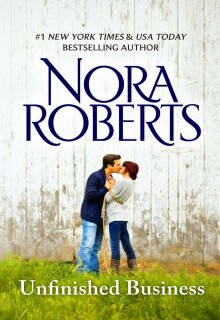 Unfinished Business
Unfinished Business Cordina's Royal Family Collection
Cordina's Royal Family Collection Dangerous Embrace
Dangerous Embrace One Summer
One Summer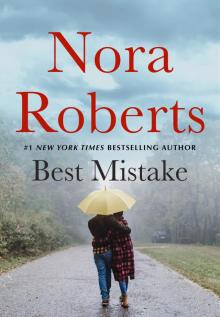 The Best Mistake
The Best Mistake Boundary Lines
Boundary Lines Under Currents
Under Currents The Stanislaski Series Collection, Volume 1
The Stanislaski Series Collection, Volume 1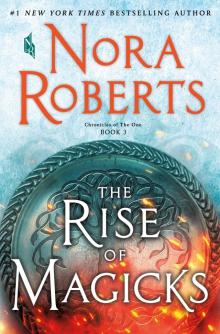 The Rise of Magicks
The Rise of Magicks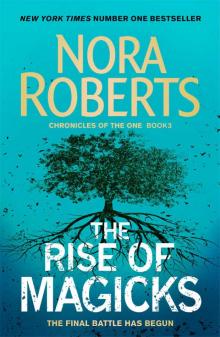 The Rise of Magicks (Chronicles of The One)
The Rise of Magicks (Chronicles of The One) The Awakening: The Dragon Heart Legacy Book 1
The Awakening: The Dragon Heart Legacy Book 1 Dance of Dreams
Dance of Dreams Skin Deep: The O'Hurleys
Skin Deep: The O'Hurleys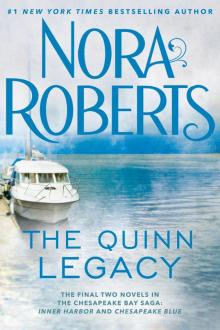 The Quinn Legacy: Inner Harbor ; Chesapeake Blue
The Quinn Legacy: Inner Harbor ; Chesapeake Blue![[Chronicles of the One 03.0] The Rise of Magicks Read online](http://i1.bookreadfree.com/11/chronicles_of_the_one_03_0_the_rise_of_magicks_preview.jpg) [Chronicles of the One 03.0] The Rise of Magicks
[Chronicles of the One 03.0] The Rise of Magicks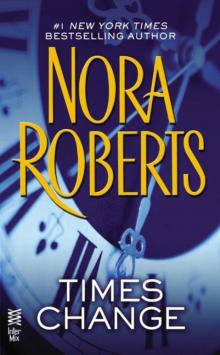 Times Change
Times Change Dance to the Piper: The O'Hurleys
Dance to the Piper: The O'Hurleys Christmas In the Snow: Taming Natasha / Considering Kate
Christmas In the Snow: Taming Natasha / Considering Kate Waiting for Nick
Waiting for Nick Summer Desserts
Summer Desserts Dream 2 - Holding the Dream
Dream 2 - Holding the Dream The Novels of Nora Roberts, Volume 2
The Novels of Nora Roberts, Volume 2 In the Garden Trilogy
In the Garden Trilogy Eight Classic Nora Roberts Romantic Suspense Novels
Eight Classic Nora Roberts Romantic Suspense Novels Best Laid Plans jh-2
Best Laid Plans jh-2 From the Heart
From the Heart Holiday Wishes
Holiday Wishes Dream 1 - Daring to Dream
Dream 1 - Daring to Dream Second Nature
Second Nature Summer Pleasures
Summer Pleasures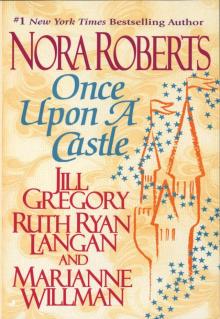 Once Upon a Castle
Once Upon a Castle Stars of Mithra Box Set: Captive StarHidden StarSecret Star
Stars of Mithra Box Set: Captive StarHidden StarSecret Star Impulse
Impulse The Irish Trilogy by Nora Roberts
The Irish Trilogy by Nora Roberts The Pride Of Jared Mackade tmb-2
The Pride Of Jared Mackade tmb-2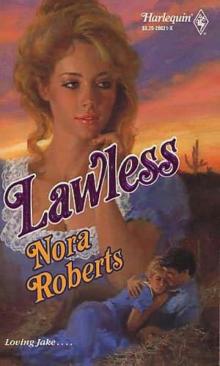 Lawless jh-3
Lawless jh-3 Taming Natasha
Taming Natasha Endless Summer
Endless Summer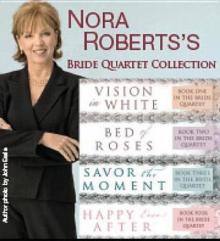 Bride Quartet Collection
Bride Quartet Collection Happy Ever After tbq-4
Happy Ever After tbq-4 Heart Of The Sea goa-3
Heart Of The Sea goa-3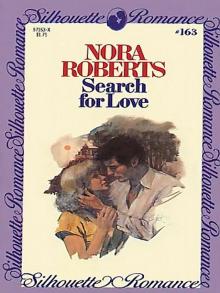 Search for Love
Search for Love Once upon a Dream
Once upon a Dream Once Upon a Star
Once Upon a Star Dream Trilogy
Dream Trilogy Risky Business
Risky Business The Novels of Nora Roberts, Volume 3
The Novels of Nora Roberts, Volume 3 Dream 3 - Finding the Dream
Dream 3 - Finding the Dream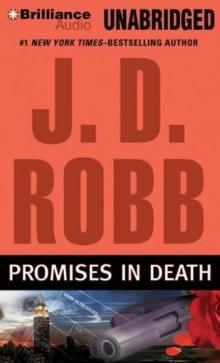 Promises in Death id-34
Promises in Death id-34 The Novels of Nora Roberts, Volume 4
The Novels of Nora Roberts, Volume 4 The Perfect Hope ib-3
The Perfect Hope ib-3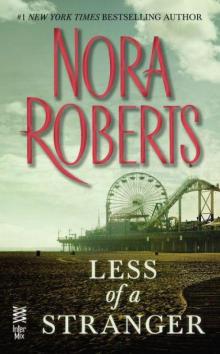 Less than a Stranger
Less than a Stranger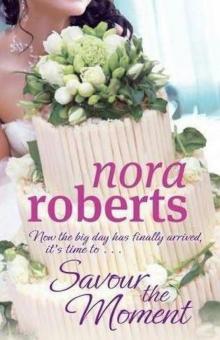 Savour the Moment: Now the Big Day Has Finally Arrived, It's Time To...
Savour the Moment: Now the Big Day Has Finally Arrived, It's Time To... Convincing Alex
Convincing Alex Bed of Roses tbq-2
Bed of Roses tbq-2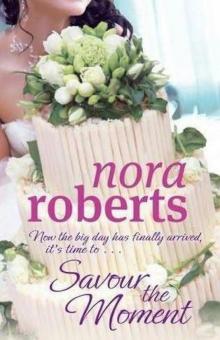 Savour the Moment tbq-3
Savour the Moment tbq-3 Lessons Learned
Lessons Learned Key Of Valor k-3
Key Of Valor k-3 Red lily gt-3
Red lily gt-3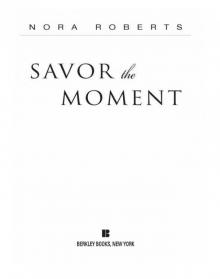 Savor the Moment
Savor the Moment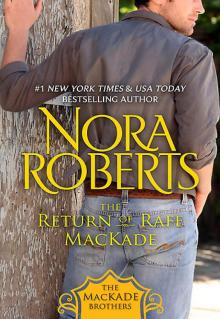 The Return Of Rafe Mackade tmb-1
The Return Of Rafe Mackade tmb-1 For The Love Of Lilah tcw-3
For The Love Of Lilah tcw-3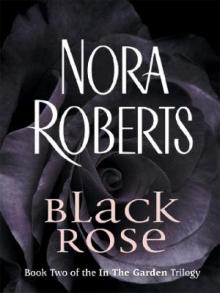 Black Rose gt-2
Black Rose gt-2 Novels: The Law is a Lady
Novels: The Law is a Lady Chesapeake Bay Saga 1-4
Chesapeake Bay Saga 1-4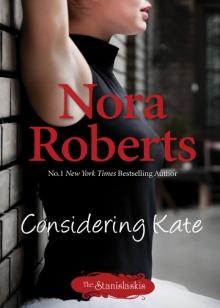 Considering Kate
Considering Kate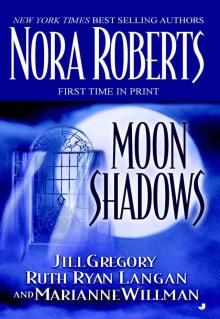 Moon Shadows
Moon Shadows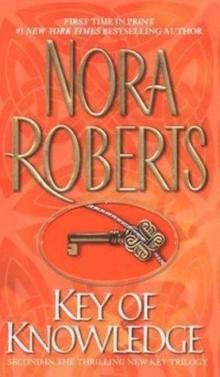 Key of Knowledge k-2
Key of Knowledge k-2 The Sign of Seven Trilogy
The Sign of Seven Trilogy Once Upon a Kiss
Once Upon a Kiss The Novels of Nora Roberts, Volume 5
The Novels of Nora Roberts, Volume 5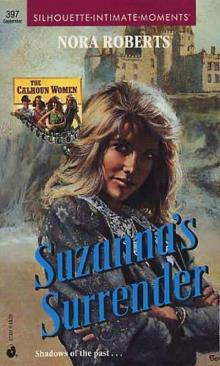 Suzanna's Surrender tcw-4
Suzanna's Surrender tcw-4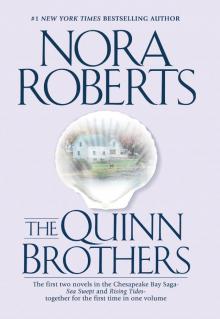 The Quinn Brothers
The Quinn Brothers Falling for Rachel
Falling for Rachel Brazen Virtue
Brazen Virtue Time Was
Time Was The Gallaghers of Ardmore Trilogy
The Gallaghers of Ardmore Trilogy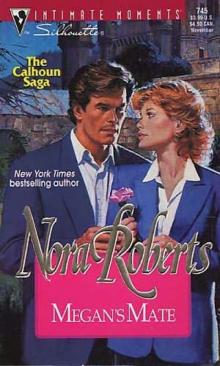 Megan's Mate tcw-5
Megan's Mate tcw-5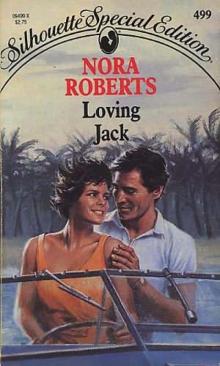 Loving Jack jh-1
Loving Jack jh-1 Rebellion & In From The Cold
Rebellion & In From The Cold Blue Dahlia gt-1
Blue Dahlia gt-1 The MacGregor Grooms
The MacGregor Grooms The Next Always tibt-1
The Next Always tibt-1 The Heart Of Devin Mackade tmb-3
The Heart Of Devin Mackade tmb-3 The Novels of Nora Roberts Volume 1
The Novels of Nora Roberts Volume 1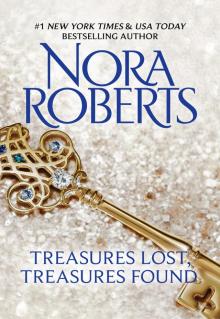 Treasures Lost, Treasures Found
Treasures Lost, Treasures Found Nora Roberts's Circle Trilogy
Nora Roberts's Circle Trilogy The Key Trilogy
The Key Trilogy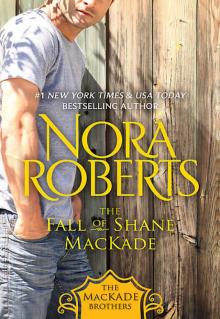 The Fall Of Shane Mackade tmb-4
The Fall Of Shane Mackade tmb-4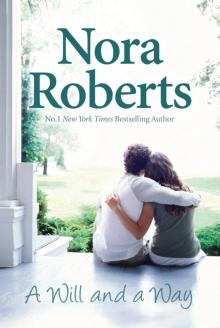 A Will And A Way
A Will And A Way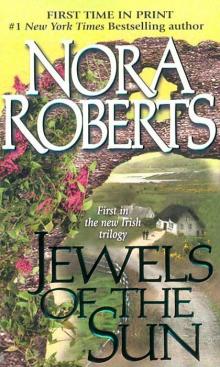 Jewels of the Sun goa-1
Jewels of the Sun goa-1 Luring a Lady
Luring a Lady